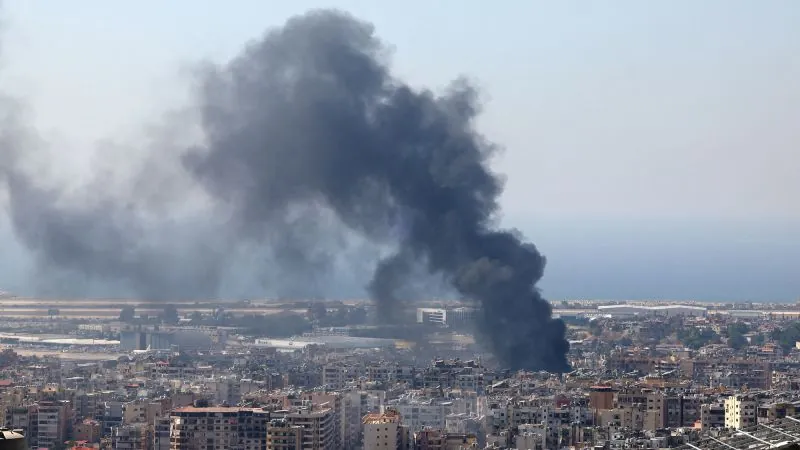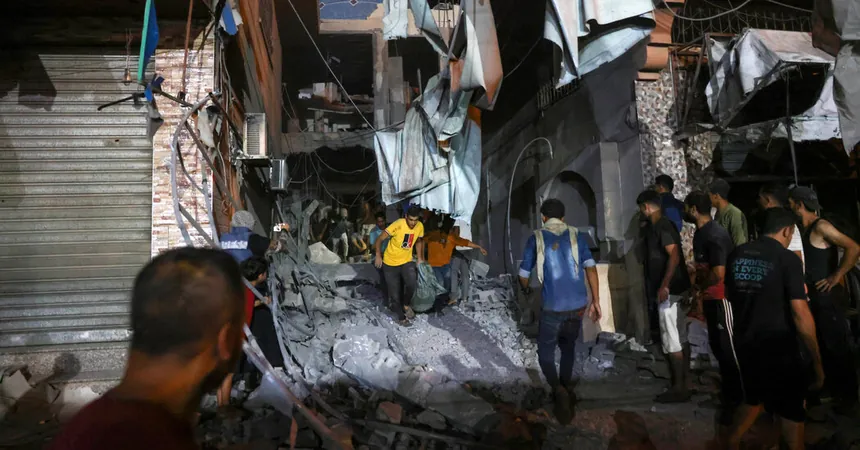
Escalation in the Middle East: Israel Strikes Lebanon and Gaza Amidst Ongoing Hostilities with Hamas and Hezbollah
2024-10-08
Author: Chun
Introduction
In a critical turn of events, Israeli Prime Minister Benjamin Netanyahu has instructed Defense Minister Yoav Gallant to postpone his scheduled trip to Washington, D.C. Israeli officials revealed that Netanyahu seeks to have a conversation with U.S. President Joe Biden before Gallant meets with U.S. Defense Secretary Lloyd Austin. This decision indicates the urgency of Israel’s military actions in response to the heightened tensions arising from Iran's recent missile attacks.
U.S. Influence and Diplomacy
The backdrop of Netanyahu's directive emerges as senior U.S. officials acknowledge the limitations of American influence over Israel's decisions, particularly concerning Iran. Former Israeli diplomat Alon Pinkas noted that the U.S.'s major leverage at this time lies in coordinating diplomatic discussions, which may delay further military actions.
Humanitarian Crisis in Gaza
In Gaza, the humanitarian toll escalates dramatically. An Israeli strike on a residential area in central Gaza resulted in the deaths of at least 30 Palestinians, as confirmed by officials at Al-Aqsa Martyrs Hospital. Eyewitness accounts depict harrowing scenes; one father recounted holding his son as shrapnel struck, while many mourners filled the morgue. The cumulative toll since the onset of hostilities has reportedly included over 16,000 child casualties, raising urgent calls for international humanitarian intervention.
Ongoing Conflict and Military Strategy
As the situation evolves in the Middle East, Israel remains engaged in a multifaceted conflict, vowing to continue its military operations against Hamas while also calculating a potential response to Iran's provocative missile launches. This anniversary of the October 7 Hamas attacks serves as a grim reminder of the ongoing violence, with commemoration events reflecting deep national grief and anger.
Israeli Strikes on Hezbollah in Lebanon
The military landscape is further complicated as Israeli forces have carried out extensive strikes on Hezbollah positions in Lebanon, following a string of explosions in Beirut, inflicting damage to Southern suburbs around the city. A recent analysis indicates that hospitals in affected zones are under severe constraints due to evacuation orders imposed by the Israeli military.
Future Prospects and the Call for Ceasefire
As both sides brace for further escalations, tensions remain high, and the call for a renewed ceasefire appears increasingly distant. The CIA warns of a potential escalation that could spiral beyond the immediate conflict, while the U.S. finds itself navigating the complexities of Israeli military strategy without the prospect of halting hostilities.
The Need for a Cohesive Strategy
In light of these developments, Israeli military strategy is being questioned, highlighting the need to transform tactical victories into a cohesive long-term framework that ensures both security for Israel and stability in the region. The pressure mounts on leaders from both nations to find a sustainable and peaceful resolution to an enduring conflict that has claimed far too many lives.



 Brasil (PT)
Brasil (PT)
 Canada (EN)
Canada (EN)
 Chile (ES)
Chile (ES)
 España (ES)
España (ES)
 France (FR)
France (FR)
 Hong Kong (EN)
Hong Kong (EN)
 Italia (IT)
Italia (IT)
 日本 (JA)
日本 (JA)
 Magyarország (HU)
Magyarország (HU)
 Norge (NO)
Norge (NO)
 Polska (PL)
Polska (PL)
 Schweiz (DE)
Schweiz (DE)
 Singapore (EN)
Singapore (EN)
 Sverige (SV)
Sverige (SV)
 Suomi (FI)
Suomi (FI)
 Türkiye (TR)
Türkiye (TR)